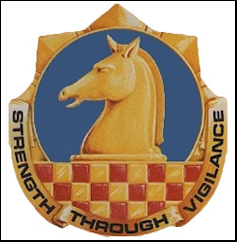 Today the Privacy and Civil Liberties Oversight Board (PCLOB) issued its 238-page report declaring that the National Security Agency’s program to collect bulk phone call records is illegal and recommending that it be discontinued. The precise title of the report is Report on the Telephone Records Program Conducted Under Section 215 of the USA PATRIOT Act and On the Operations of the Foreign Intelligence Surveillance Court.
Today the Privacy and Civil Liberties Oversight Board (PCLOB) issued its 238-page report declaring that the National Security Agency’s program to collect bulk phone call records is illegal and recommending that it be discontinued. The precise title of the report is Report on the Telephone Records Program Conducted Under Section 215 of the USA PATRIOT Act and On the Operations of the Foreign Intelligence Surveillance Court.
This report is one of the results of NSA contractor Edward Snowden’s unauthorized release of classified NSA information. Snowden’s release of the information and his subsequent search for asylum has been a big news story for months, and it will continue to be so for months to come.
Equally important, or maybe even more important, is the answer to a question that has been quietly asked and largely unanswered: How did a relatively low-level employee of NSA contractor Booz Allen get placement and access to such a diverse and large quantity of extremely sensitive information?
The answer, or at least the start of an answer, was in a Washington Post newspaper article today. The article’s headline, Justice Department says USIS submitted 665,000 incomplete background checks, hints at the answer to the question, “How did Snowden get a clearance?” The Washington Times news article’s headline, Justice Department: Firm that vetted Snowden, Navy Yard shooter cheated government, was blunt and even clearer.
It’s no surprise to most people that the federal government contracts out a great deal of work to private industries rather than have the work performed by government employees.
What may surprise some people is that since 1972, the vast majority of background investigations for federal security clearances, including those for the Department of Defense, have been conducted by private contractors. Prior to that, DoD’s security clearance investigations were performed through U.S. military departments by four major DoD investigative agencies. They were: 1) the U.S. Army Intelligence Command, 2) the U.S. Army Criminal Investigative Command, 3) the Naval Investigative Service, and 4) the Office of Special Investigations, Air Force. Personnel security investigations (PSIs) were conducted by counterintelligence and criminal investigative personnel, Special Agents, in those military agencies.
When I was a student in the Counterintelligence Agent course at Ft. Holabird, MD, in 1970-71, a substantial amount of time was spent training us to conduct PSIs and related investigations. As part of the larger course to train us in counterespionage, the importance of diligent, thorough background investigations for security clearances was stressed. In fact, one Army study going back several decades and examining critically every case of espionage committed by a US Army soldier or civilian determined that each offender’s background investigation had at least one preventable defect that if detected would have likely caused the applicant’s rejection for placement and access to classified material.
One of the instructors opined that with the increasing number of federal employees being given access to classified information, he envisioned the day that a security clearance would be considered a right, an entitlement, that could be denied only after a conclusive showing that an applicant was unsuitable or unfit to hold one. The instructor lamented that inevitably both the standards for denying a security clearance and the quality of investigations conducted on an applicant would be similarly reduced, most likely to a dangerous level.
At that time the instructor almost certainly was aware that the PSI function was going to be consolidated under one agency. What he may not have foreseen was that the investigations previously performed in person by investigators trained and very skilled in conducting interviews and developing spinoff sources would eventually be conducted over the telephone by persons who were essentially little more than telephone call center operators trained to ask questions and check boxes on forms. Only investigations of applicants for the most sensitive positions requiring full-field background investigations would be done by trained counterintelligence investigators conducting PSI interviews in person.
Apparently Edward Snowden’s position was not considered sensitive enough to warrant a meaningful investigation by trained counterintelligence investigators. If that is the case, if Snowden was not properly investigated to determine his suitability to hold a security clearance, that should worry a lot of people.
(PS: Anyone recognize the emblem in the photo?)
